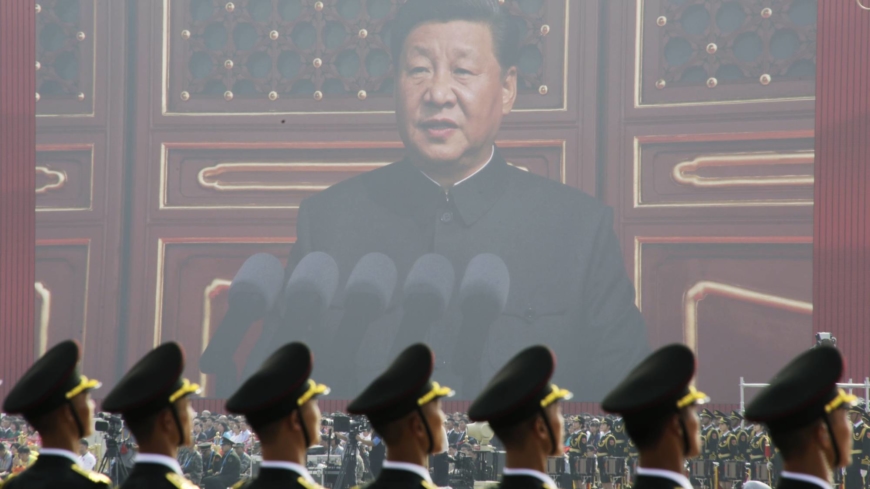[ad_1]
Hong Kong/Beijing – China is expected to reveal a robust increase in defense spending at the March 5 annual opening of its parliament, as its economy rebounds from the COVID-19 pandemic and military tensions rise, Chinese and Western security experts said.
With the coronavirus hammering its economy, China last year announced a 6.6% boost in defense spending to $178 billion, the lowest rate of increase in three decades.
The new administration of President Joe Biden has moved quickly to remind Beijing that the United States intends to compete with China’s growing influence and military strength in the Asia-Pacific. In recent weeks, powerful U.S. warship fleets have sailed near Chinese-claimed Taiwan and through disputed territory in the South China Sea, to Beijing’s anger.
“China is facing the most severe security situation since the Korean War,†said Ni Lexiong, a retired professor at the Shanghai University of Political Science and Law.
He predicts a substantial hike in China’s military budget, citing U.S. arms sales to Taiwan, regular deployments of U.S. aircraft carriers off the China coast and the recent presence of a French warship and nuclear submarine in the South China Sea.
“Looking at public opinion, it has become more urgent to take back Taiwan militarily. That is why the budget will surely rise sharply,†he said.
Ross Babbage, a nonresident fellow at the Washington-based Center for Strategic and Budgetary Assessments and former Australian defense official, expects a rise of about 7%.
“That is less than some people might expect and the reason for that is the Chinese economy is still not in great shape.â€

China’s economy grew just 2.3% in 2020, although it was the only major economy not to contract, and is expected to see growth of 8.4% percent this year, a Reuters poll found.
China’s Defense Ministry did not respond to a request for comment.
Many Western experts believe Beijing’s real military outlays are far higher than official figures.
China’s published military spending for 2019 was $174 billion adjusted for inflation, or 1.3% of GDP, according to an annual Pentagon report in September. That excludes outlays on research and development and foreign weapons buying, and the Pentagon estimated that real spending in 2019 could be more than $200 billion.
The Stockholm International Peace Research Institute estimated China spent $261 billion on its military in 2019.
The United States spent $732 billion, or about 3.4% of GDP, on its military in 2019.
If Beijing does announce a sharp increase, it would signal an intention to intensify military operations against Taiwan or assert Chinese sovereignty over other disputed territory in the South China Sea or East China Sea, Babbage and other Western analysts said.
Wang Xiangsui, a retired senior colonel in the People’s Liberation Army and a professor at Beihang University in Beijing, said a rumor last year that the United States was considering a plan to use MQ-9 drones to attack islands or reefs in the South China Sea in a so-called “October Surprise†would have given China a keener sense of crisis about the security situation.
Beijing took the rumor seriously enough to seek formal clarification from the Pentagon and subsequently publicized U.S. denials, he added.
Wang said U.S. moves to restrict Chinese access to military equipment and technology would force China to invest more on homegrown research and development.
“The U.S. military wants to preserve its overwhelming advantage in nuclear and space, and China wants to upset this. More spending is definitely needed,†Wang said.
In a time of both misinformation and too much information, quality journalism is more crucial than ever.
By subscribing, you can help us get the story right.
[ad_2]
Source link








